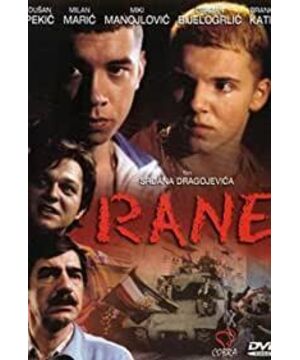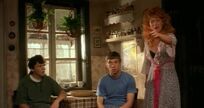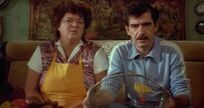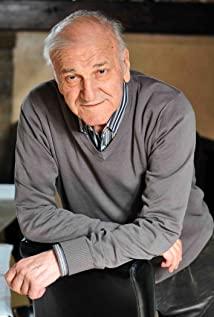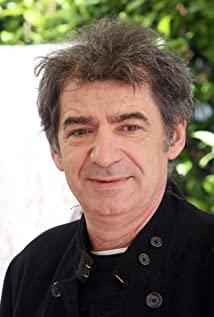If you want to see how chaotic and unbearable a country is after the disintegration of the country, please see "There were so many wounds in that year"; if you want to see how a woman escaped from her family because of mental depression, please see "Montenardo" in 1981. Let's forget for a moment movies like "City of God" and "The Claytons." Why put these two films together, just because they both come from Serbia and come from the peculiar temperament of the Slavic nation. This nation seems to be on fire. The so-called "powder keg" of the Balkans. Croats, Muslims, Albanians, and Macedonians are all roughly similar, although their beliefs are different.
"There were so many wounds that year", directed by Srjan Dragojevich, truly reproduces the chaos, absurdity, decadence and lack of spiritual support of the "post-Tito" era. Different from Kusturica's "Underground", this one is more down-to-earth and closer to the whole picture of the so-called transition period of the former Yugoslavia at that time. Of course, in terms of performance style, these are two completely different films.
The master was born on the day of Tito's death in 1980, which itself implies a certain fate. He hangs out with his friend Claude all day long, and gets a big Dick back from Germany. They take the violent and all-inclusive Dick as their life mentor, and gradually transformed from a young teenager to a cold-blooded street gangster. Shouting, shouting and killing became their daily routine. The Pingzhi family, like all families at the time, initially had high hopes for the Serb leader, Milosevic, who raised their fists in support of the Serb-Croatian war. Even one of Heiji's classmates whose parents are Croats will face a punch.
Serbia at this time was completely in a frenzy and blindness. They can't tell right from wrong and mistake black for white. Only Claude's ninety-year-old grandma stayed at home quietly because she had been through so much. She knew that the confusion would come after clarification. Heiji and Claude followed Dick and learned to smoke marijuana and participate in drug trafficking. They believe what Dick says if you don't fuck someone else, someone else will fuck you. After Dick was shot, they became more insane and bloody.
When the violence of the people replaces the laws of the country, it is difficult for everyone to survive alone, just like the catastrophe in the "Cultural Revolution". In the end, even the belligerent father of Pingji was disappointed, and everyone was disappointed with the rulers, and they shared the bread. They began to yearn for peace. But peace has been slow to come, and the country continues to be unknown in the chaos. Heiji's father had to pick up the gun and kill himself. Heiji and Claude start shooting each other for a TV station's slutty woman, even though their shootings are just to make up for a huge "friendship".
All the blood was drained from the wounds. Even the Croatian boy they bullied shot them with hate bullets, killing all three. This is the story Heiji told himself in the kingdom of heaven. The time period is from 1991 to 1997. In fact, it is not over yet, and later experienced a bigger "bombing". It's just that they can't see Pingzhi.
Directed by the famous former Yugoslav director Duchamp Makaviev, "Montenaco" has the wit of Kusturica films, reminiscent of "Black Cat and White Cat" and "Song of the Wanderer", obviously the content Very different. Montenaco is a pet dog that the heroine Jordan bought with her husband. In order to please his wife, the husband bought a dog and invited a psychiatrist, but to no avail. Depressed wife should be neurotic or neurotic. She can burn the quilt when her husband ignores her. No matter what the two children do, they enjoy their own happiness together with their grandfather, whatever their mother does. Only the hostess Jordan is on the verge of collapse.
So Jordan took the opportunity to celebrate the New Year with a strange band from Serbia when he and her husband went abroad. After leaving her husband, Jordan's closed body and mind completely opened up. The unrestrained and carnival of the gypsies deeply attracted her. She accidentally meets the guy she met when she bought Montenaco. She fell in love with him. The joy of the peculiar band is endless. It got her hooked. She and the guy are also completely in a mad love.
The New Year's fireworks will always go out after the sky is bright.
Love that is divorced from reality cannot last. nothing is forever. She returned to the family after a few days of release, and she brought back a smiling face. This is the transformation after she left. The so-called heart disease needs to be cured by the heart. If you can't open her frozen heart, everything will be lost.
The two films have nothing to do with each other, just because they both come from Serbia, and just because they both have different wounds. We've been keeping an eye on there. There seems to be some kind of magic in the Balkans that always attracts us. What I'm trying to say is that it's not just Kusturica, there are good movies like this. They allow us to appreciate more of the unique culture and heritage of the Slavic peoples.
This national identity is destined to be open to them. Even in the Tito era more than 30 years ago, they were the only socialist country that was not close to the big brother of the Soviet Union at first. Just like what they did in the face of German fascists during World War II, they exchanged the sacrifice of more than one million people. the result of victory. This is an immeasurable nation. It is also an untamed nation.
2013, January, 21
View more about The Wounds reviews


